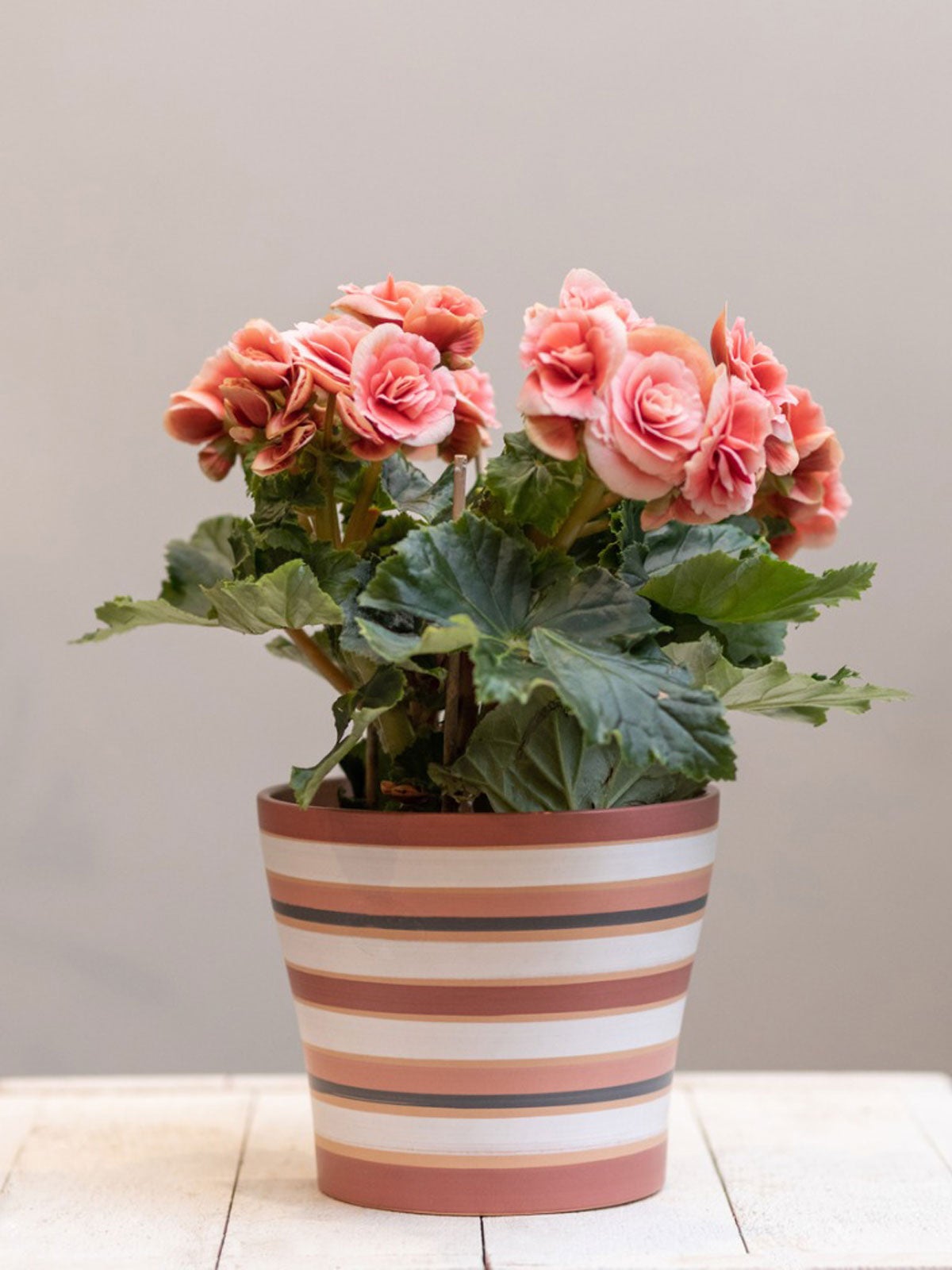How To Care For Begonias As Houseplants


Sign up for the Gardening Know How newsletter today and receive a free copy of our e-book "How to Grow Delicious Tomatoes".
You are now subscribed
Your newsletter sign-up was successful
Begonias are a popular houseplant. Some varieties of begonia houseplants are grown for their flowers while others are grown for their striking foliage. Growing begonias as houseplants only requires a little bit of knowledge in order to keep them looking their very best indoors. Let's take a look at how to care for begonias as houseplants.
Tips for Growing Begonia as Houseplants
The first thing to do when learning how to care for begonias indoors is to determine what kind of begonia you have. Begonias belong to one of three types -- tuberous, fibrous, and rhizomatous.
Generally, fibrous and rhizomatous begonias make excellent houseplants while tuberous begonias can be grown as houseplants but have a harder time surviving due to the need for higher humidity and light than the other two kinds. Care of begonias indoors starts with the proper location.
One of the tips for growing begonia as houseplants is to place them somewhere where they will get bright, indirect light and will get plenty of humidity. If the air in your house is dry, especially in the winter, it is a good idea to set your begonia houseplants on a shallow tray filled with pebbles and water.
This will allow your growing begonias to get the humidity they need indoors without waterlogging the soil or exposing the leaves to excess moisture that could cause disease. Begonias grown indoors are especially susceptible to root rot and overwatering.
When you take care of begonias, make sure that you only water them when they need to be watered. Many experts suggest you actually wait until the plant shows signs of being dry, such as drooping leaves, before you water them. This will help prevent accidental overwatering, which is the main reason for begonias dying when grown indoors.
Also, when you water your begonia houseplant, make sure to water below the leaves in order to avoid inviting a fungal disease. Another tip for growing begonia plants indoors is that they are naturally pest-resistant. It is extremely rare to have a begonia develop a pest problem.
Sign up for the Gardening Know How newsletter today and receive a free copy of our e-book "How to Grow Delicious Tomatoes".
But, they are still susceptible to fungus issues, like powdery mildew, which is why it is best to keep the leaves dry. Growing begonias as houseplants can fill your home with lovely flowers and foliage. In the right location, begonia houseplants can flourish indoors.

Heather Rhoades founded Gardening Know How in 2007. She holds degrees from Cleveland State University and Northern Kentucky University. She is an avid gardener with a passion for community, and is a recipient of the Master Gardeners of Ohio Lifetime Achievement Award.